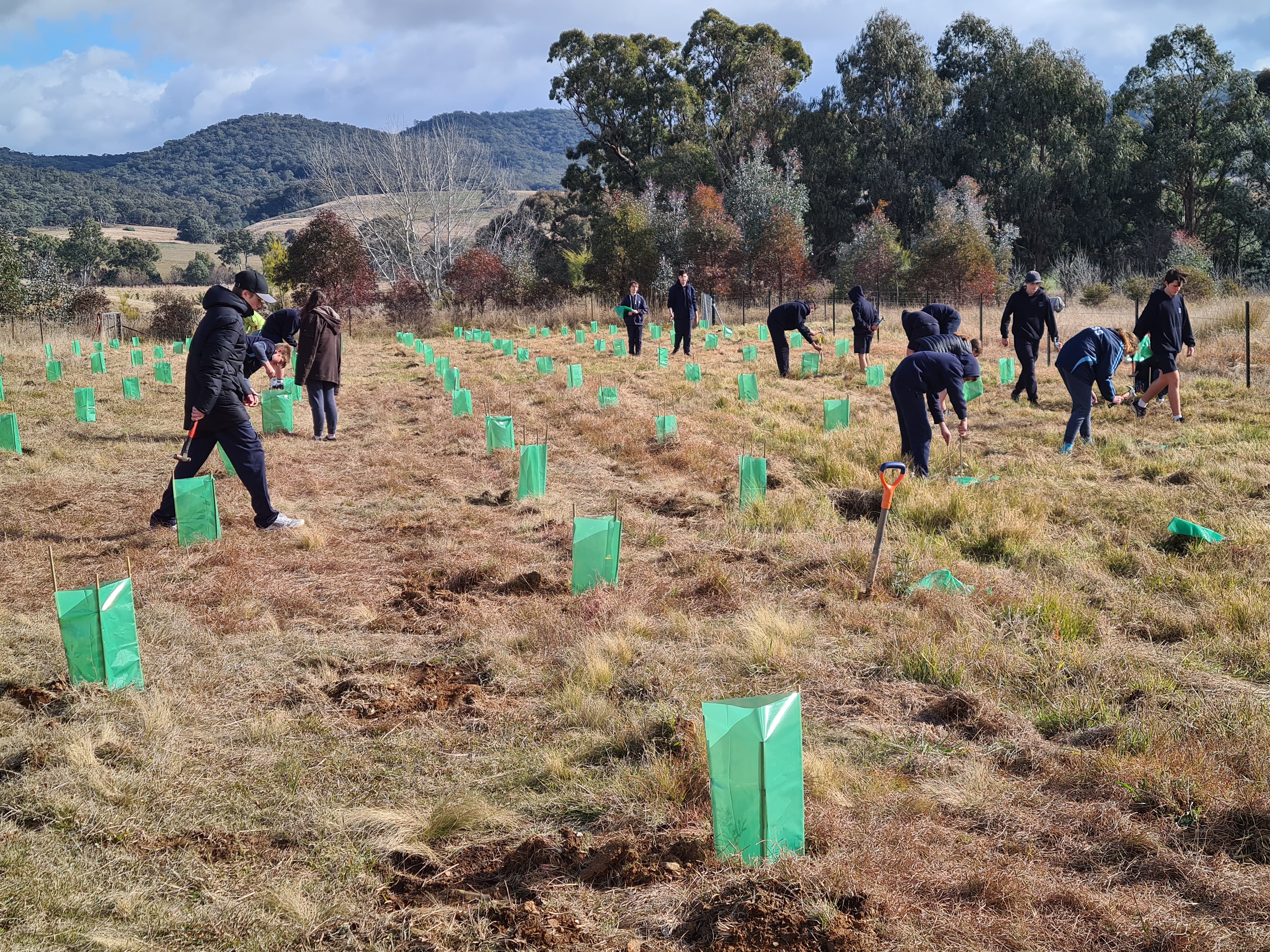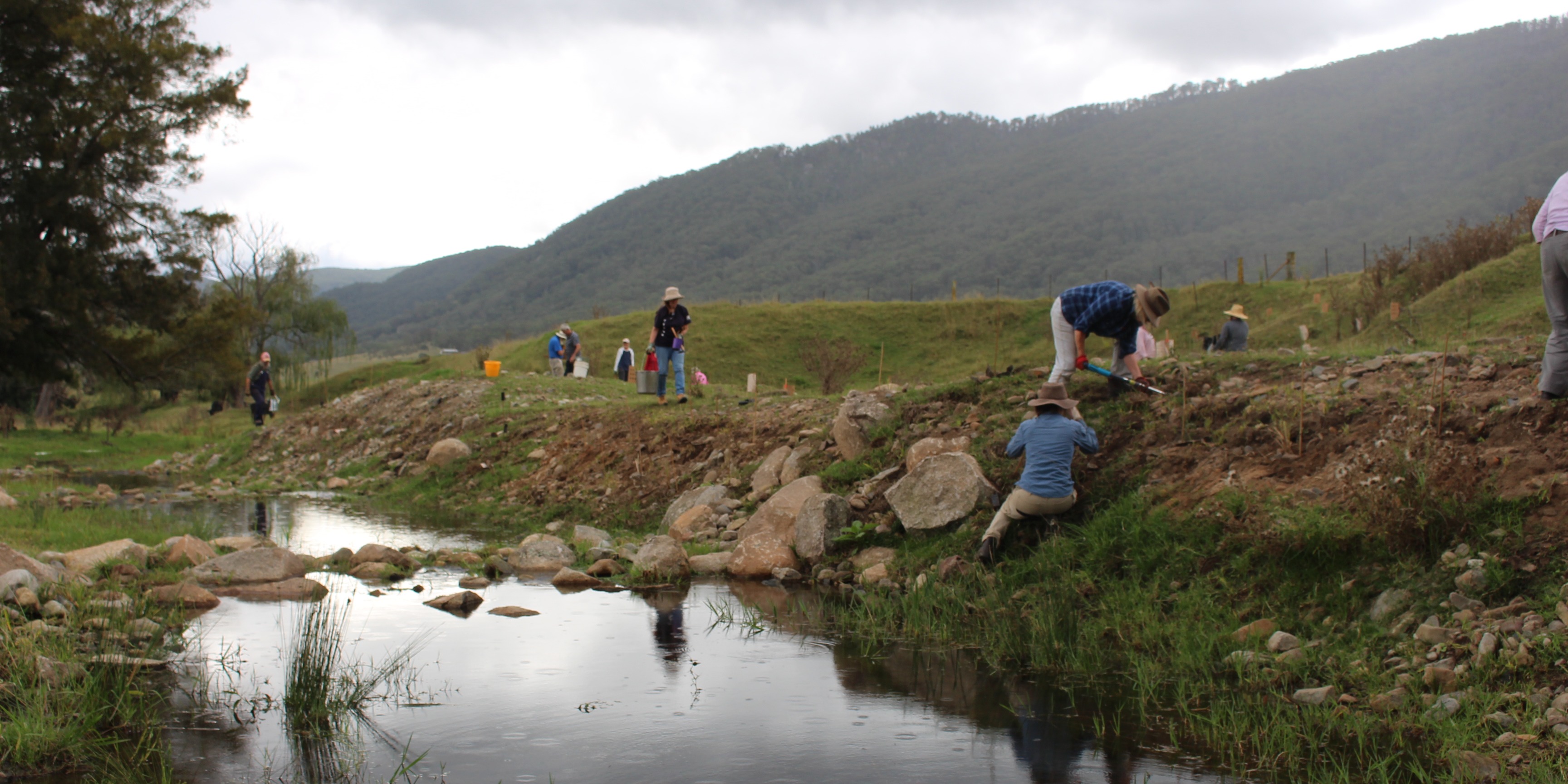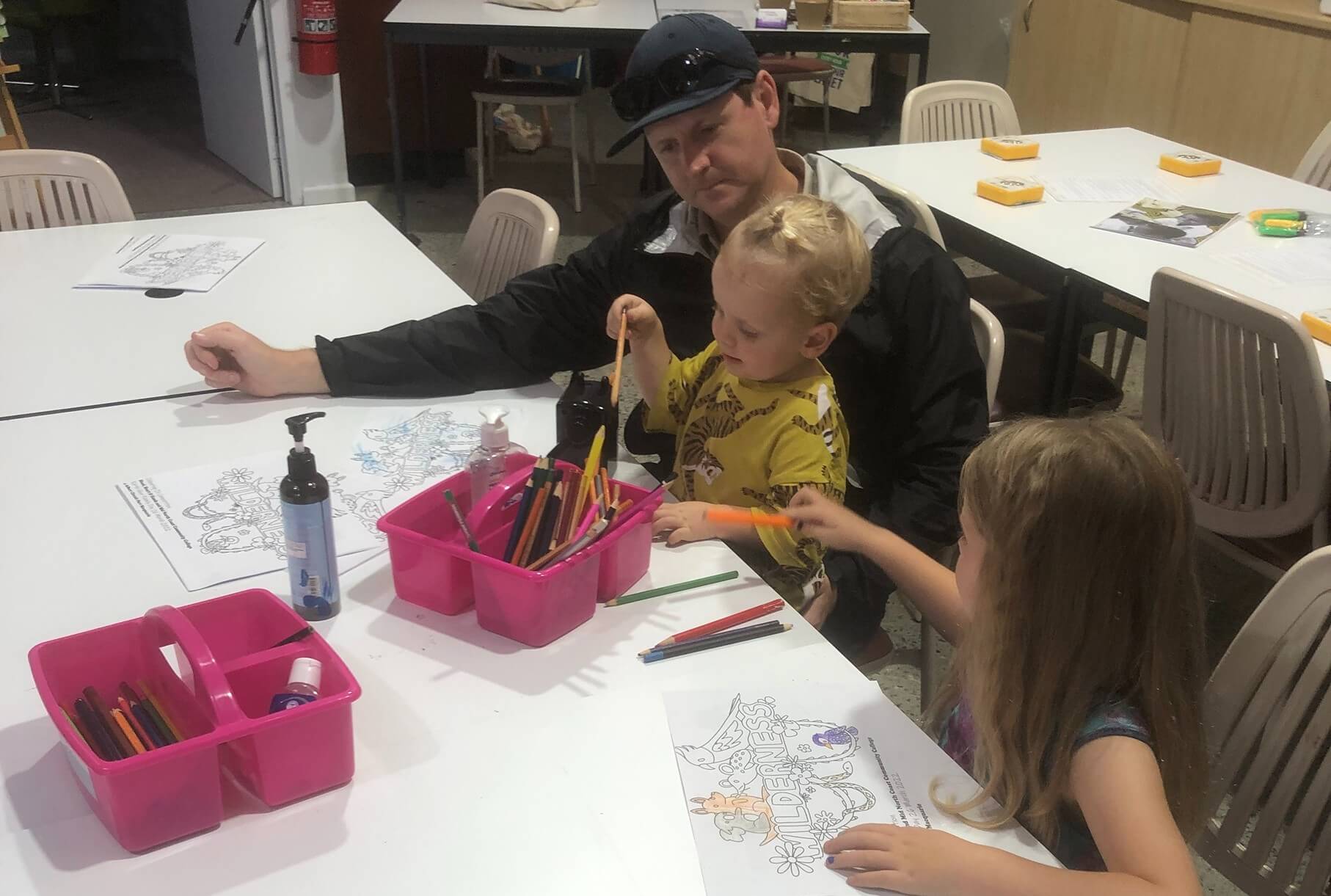About this case study
Heat and drought
Communities
Community engagement
How do you build knowledge and skills, the desire to act and provide the community supports to do so? Port Macquarie Hastings Sustainability Network have done just this through their ‘Head, Heart and Hands’ project.
If people don’t know how to solve a problem, they tend to ignore that problem. We wanted this project to enable the community to reconnect with self, nature and others, to tackle the complex challenges, we face together.
Kate Medcalf, Project Coordinator
Like many regions facing ever-increasing extreme weather events, building resilience to the long-term impacts of climate change on the social economic and wellbeing of the Port Macquarie Hastings community has become increasingly important.
Following the drought and the bushfires of 2019, the Port Macquarie Hastings Sustainability Network, knew the community was facing a crisis that needed to be addressed. The Network is made up of individuals, businesses and other organisations from the area who are passionate about improving the sustainability of the region. They wanted to do something specific to support their community response to climate change impacts and build community resilience.
“There are so many people in our community working to build resilience to climate change, in their own time, sometimes in relative isolation,” Project Coordinator, Kate Medcalf says.
"The Head, Heart, Hands project was an opportunity to connect these community members and unlock our existing potential to address the climate change impacts that are within our control at the local level, " she continues.
A team of six community-minded, passionate professionals with backgrounds in health, psychology, leadership, strategy, climate change, sustainability and engineering developed and delivered a series of workshops, webinars and community events.
The events ran across four streams focusing on the most urgent issues within the community including climate change resilience and emergency preparedness for individuals; food and land resilience; mental and physical health and wellbeing; and creating resilient buildings, spaces and environments.
Around 900 people participated in the events delivered by or supported through the project. These included four mentor lead working groups which engaged around 90 community members in conversations about how to build climate resilience in the community. More than 1400 people engaged with digital content delivered by the team.
"Coming together as a community to share experiences and ideas in person is important in building the connections that can sustain us through difficult times. Participation by such a large number of community members – despite the concurrent challenges of the pandemic and extreme weather events, is a marker of how important the issue of climate change is to our everyday lives" says Dr Mollard, member of the HHH team.
The locally based mentorship program facilitated further conversations about mental health and climate change, the development of climate resilient gardens and the publication of an e-book to guide residents in using food co-ops to support local farmers. Ninety participants met flexibly, online or face to face for these sessions, depending on the COVID-19 restrictions in place at the time. An additional 10 workshop participants were supported to transform knowledge into action through individual or small group mentorship with workshop facilitators.
“By engaging in a way that armed the community with knowledge and skills (Head), provided a connection to others (Heart) and enabled a practical way to get involved (Hands), individuals within our community could better prepare and support local projects that would build resilience,” says Ms Medcalf.
The project culminated in a visioning workshop for future climate action and resilience in the Port Macquarie Hastings region in March 2022, which has seeded ideas for many new projects and an ongoing working group to explore how the community can best collaborate in the future.
If there is one thing we have learnt from the recent drought, fire and flood, it is that people working together to foster resilience and sustainability can achieve wonderful outcomes
Dr Sarah Mollard
This project was funded by an Increasing Resilience to Climate Change grant from the NSW Government.
Case studies
The Restore and Renew webtool provides simple, science-backed guidance to improve restoration projects across New South Wales. In the Hunter Valley, it is helping to rebuild climate-ready, genetically diverse populations of the River Red Gum.

The Yass Area Network of Landcare Groups is is using the Restore and Renew webtool to guide seed selection for their Climate Ready Revegetation Project.

